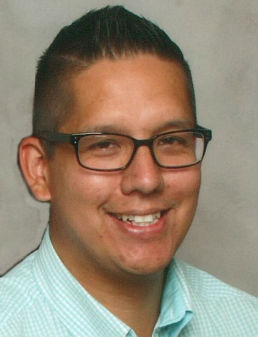Welcome to Indigenous Futures in Engineering, Queen's University
Search
Kristopher Peters

Type(s) of Engineering:
Civil“My favourite perk about my job is that I can give back to the community and the public.”
The first memory Kristopher Peters has of his introduction to engineering was a graduation present from his grade 3 teacher, Ms. Ames. “She bought me a book called How Things Work,” he said.
It was the start of a love affair with civil engineering, which continues today.
“My transition into university was quite unique, as I had been fortunate to attend a very high-quality college to obtain my civil engineering diploma,” he said. “The fact that I also took AP calculus in high school and attempted an engineering university transfer program right after high school made the transition much easier.”
But it wasn’t all roses. Anyone familiar with even a tiny smidgen of the engineering field knows it is a tough nut to crack.
“The most challenging issue I faced was relocating my family to a new province over 3,000 kilometres from home to attend school,” said Peters, who now works as a civil engineer for McElhanney Consulting Services in Kamloops, British Columbia, “in a small office with a large service area.”
It enables him to be directly involved in many different areas of civil engineering.
“This is a very challenging career path and requires your devotion to being a professional, a relentless learner, a capable instructor, and most importantly a problem solver,” he said.
For younger students interested in a career in civil engineering, Peters suggests checking out the website engenious.ca and We’re Civil Engineers, the second book in the I’m an Engineer series produced by Queen’s University’s Faculty of Engineering and Applied Science.
Peters’ studies pushed him to volunteer as a mentor to First Nations engineering students throughout university, and he currently sits as Vice Chair of the South Central Branch of APEGBC, the Association of Professional Engineers and Geoscientists of British Columbia, and acts as the local community representative.
He has also offered his expertise to his home community, the Seabird Island Band, located in the Fraser Valley an hour east of Vancouver.
Peters is not just about work and mentioned that, “I enjoy competition and teamwork, so I play many sports when I can,” he said. “My children guide me to different activities as they grow, such as libraries, swimming, playgrounds, movies, adventure parks, hikes, and of course Science World.”
Peters added his spiritual connection “has taken a backseat to family and sports, but when I can, I attend different cultural and spiritual ceremonies.”
